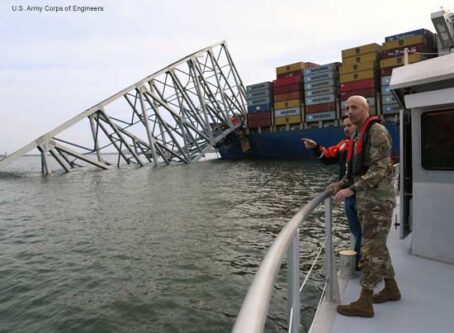KAH Transportes’ insurance company off the hook for human trafficking case
An insurance company is not obligated to pay for a Pennsylvania trucking company owner’s defense in a lawsuit since the policy does not cover human trafficking, which is at the center of the case.
On July 9, Judge Gerald Austin McHugh of the U.S. District Court for the Eastern District of Pennsylvania dismissed a case between a trucking company owner and his insurer. Carl Hemphill, owner of Darby, Pa.-based KAH Transportes and MJC Labor Solutions, sued Landmark Insurance Co. for not defending him in a lawsuit filed against Hemphill by a former employee of KAH Transportes.
Insurance policy does not cover human trafficking
In November 2019, Hemphill filed the lawsuit against Landmark Insurance after it declined to defend him or MJC Labor in a separate lawsuit filed by Jose Enrique Castillo Chaidez. In that lawsuit, Castillo accuses Hemphill, KAH Transportes and other entities owned by Hemphill of human trafficking. Castillo, a Mexican driver on an H-2B work visa, claims he was essentially condemned to indentured servitude that went far beyond the scope of the contract he signed.
Hemphill claims the miscellaneous professional liability coverage policy obligates Landmark Insurance to defend him. However, the insurance company points out the language of that policy states it will pay for such expenses “arising out of a negligent act, error or omission.”
Furthermore, MJC Labor’s professional services in the policy are defined as “solely in the performance of providing a permanent and/or temporary employee placement services and/or visa application process services for others for a fee.” Put together, Landmark is obligated to cover Hemphill for claims arising out of a negligent act, error or omission in the performance of providing a permanent and/or temporary employee placement services.
In its letter to Hemphill denying his claim, Landmark pointed out the lawsuit alleges wrongful conduct by Hemphill or MJC Labor after Castillo’s employment placement and during his employment thereby falling outside coverage. The court agreed.
“No cause of action arose out of a negligent act, error, or omission in providing placement services to Castillo; rather, the complaint focuses on purportedly intentional conduct after Mr. Castillo was placed,” Judge McHugh ruled.
The court concluded that the human trafficking counts requires Hemphill to have acted knowingly. The other counts involve federal and state wage laws, which stem from events that occurred after Castillo began work for KAH Transportes. Those counts have no relation to MJC Labor’s role in providing employee placement services.
Hemphill will now have to pay for his defense in some way other than his insurance. According to the court docket, three different law firms are listed as representing Hemphill.
Human trafficking case
The question of Landmark Insurance’s obligation derives from a case Castillo filed in federal court in May 2018. The complaint alleges Hemphill hired Castillo from Mexico on an H-2B visa to be a trucker, only to turn around and make him do landscaping and other odd jobs. The lawsuit also alleges poor living arrangements.
Upon arriving in Pennsylvania from Mexico to work for Hemphill as a trucker, Castillo was provided with housing. The apartment was filthy and had a bad odor, according to the complaint. Mattresses were on the floor throughout the apartment. No other furniture was inside. Castillo found out that five other men would be sharing the small, one-bedroom apartment. The other men were hired to do landscaping for another of the Hemphills’ businesses.
From there, Castillo rarely perform work for which he was provided an H-2B visa. He also claims he was threatened by Hemphill and his wife. He accuses the couple of threatening to deport him after Castillo attempted to get out of the situation.
Eventually, Castillo called the National Human Trafficking hotline to report KAH Transportes. The Hemphills called the police on Castillo. He was arrested after a language barrier caused confusion between Castillo and law enforcement.
The Hemphills moved to get the case dismissed but failed. For more details, check out Land Line’s previous coverage here.









